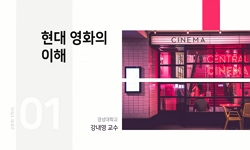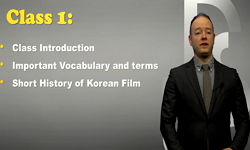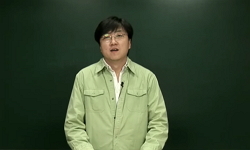A Study on the process of cultural legitimation of film in 1990's Korea - with special regard to the role of film journalism. This paper attempts to clarify sociologically what signifies the emergence of 'Film as an art' in the 1990s' Korea. It take...
http://chineseinput.net/에서 pinyin(병음)방식으로 중국어를 변환할 수 있습니다.
변환된 중국어를 복사하여 사용하시면 됩니다.
- 中文 을 입력하시려면 zhongwen을 입력하시고 space를누르시면됩니다.
- 北京 을 입력하시려면 beijing을 입력하시고 space를 누르시면 됩니다.
1990년대 한국에서 영화장르의 문화적 정당화 과정에 관한 연구 - 영화저널리즘의 역할을 중심으로
한글로보기부가정보
다국어 초록 (Multilingual Abstract)
A Study on the process of cultural legitimation of film in 1990's Korea - with special regard to the role of film journalism. This paper attempts to clarify sociologically what signifies the emergence of 'Film as an art' in the 1990s' Korea. It takes the phenomenon as the result of complex cultural legitimation process and tries to find social determinants of this process in the side of cinematic field's structural changes and following development of film journalism. For the purpose, Pierre Bourdieu's cultural sociology, or 'Field theory approach' is engaged as a theoretical background. However, it is applied flexibly rather than mechanically in consideration of the specific properties of fim and the singularity of Korean film history. In the main part of the paper, I presented a comprehensive explanation on the structural change of Korean cinematic field, focused on the institutional indexes and historical materials. I also analysed systematically the articles on film which are featured in <The Chosun Ilbo> and <The Hankyoreh Shinmun> from 1988 to 1999. The results suggest that the Korean cinematic field has progressively freed from the political power since the middle of the 1980's and strengthened both the logic of economic capital and that of symbolic capital. The journalism discourse on film supported these processes and performed a critical role in justifying culturally film as a genre of art. This study offers a kind of basic work required to make more subtle and rich analysis of Korean film culture in the 1990's. keywords: Pierre Bourdieu, Field theory, cinematic field, cultural legitimation, film journalism.











